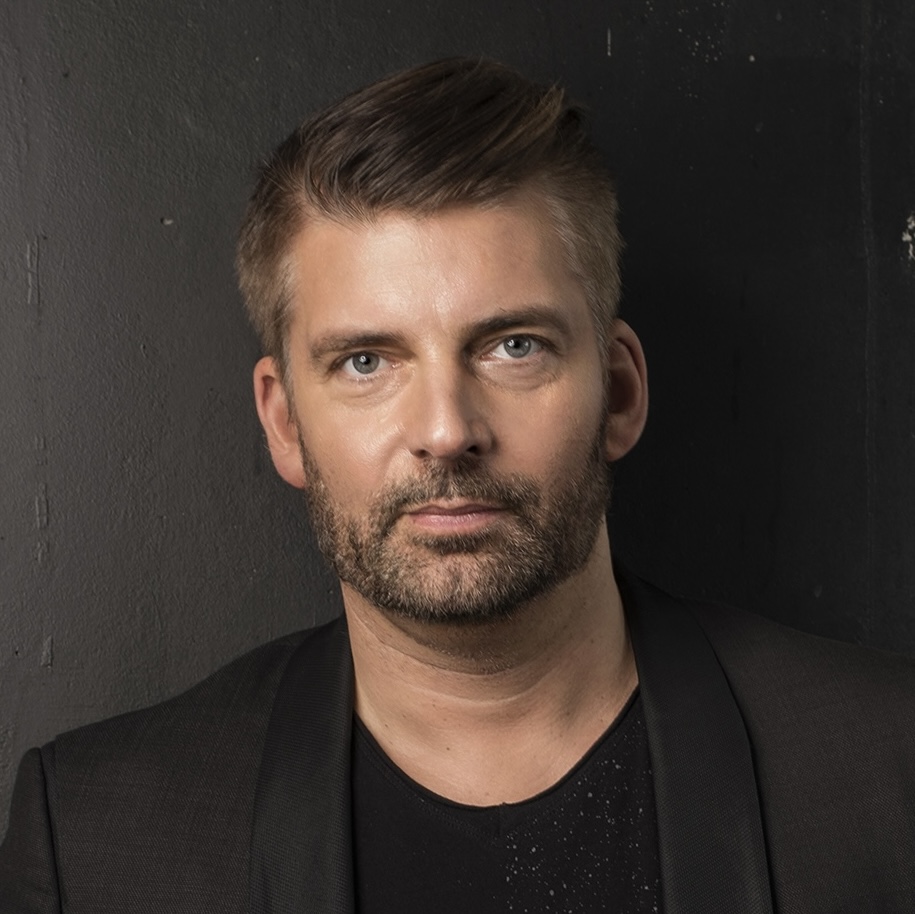Matthias Pintscher had already experienced a lifetime of music before stepping onto the podium of the Kansas City Symphony for the first time. He had led major opera productions in Vienna, Berlin, and Paris, and he had conducted major orchestras of Berlin, Amsterdam, Paris, London, Munich, Dresden, and Hamburg. For 10 years the German-born conductor was music director of Paris’ Ensemble Intercontemporain, probably the most celebrated contemporary-music group since the Florentine Camerata ca. 1600.
A pupil of Pierre Boulez and Peter Eötvös, among others, Matthias is now a major figure on the Juilliard School’s composition faculty, and his reputation as one of Europe’s most significant composers is well-established, partly through residencies with such orchestras as the Cincinnati Symphony, the Elbphilharmonie, and the Danish National Symphony.
Still, when he raised his baton to lead that first Kansas City Symphony rehearsal in March 2023, for a program of Ligeti, Ravel, and Scriabin, few expected the magic that was about to unfold.
“It felt like I had conducted this orchestra many, many times before,” said the 53-year-old recently, on a Zoom call from his home in New York City’s West Chelsea neighborhood. “There was a groove, and during the first break, players immediately walked up to me to chat.”
Within a week, the Symphony had all but called off its music director search, which had already run for a season and was slated to run another several months. No need to continue: The Symphony’s musicians, board, and staff — and its departing music director — knew that Matthias was the guy.
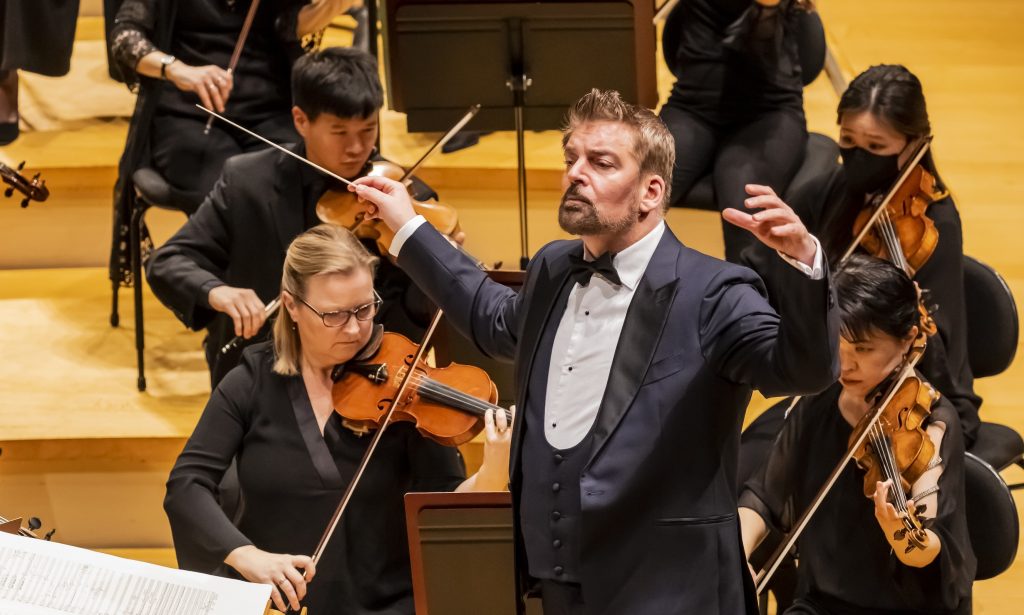
“I’m coming to Kansas City because I’ve found an orchestra here that is hungry to explore,” Matthias said at the Symphony’s press conference this March. “This is my first big job with an American orchestra — one of the finest orchestras in this country — so you get me ‘fresh,’ because I haven’t done all this before in four or five other places. I’ll give you all of what I have: in terms of creativity, respect, and grace. And of course I want to invest in the beautiful diversity that is classical music nowadays, on all imaginable levels.”
It wasn’t just the Symphony: It was all of Kansas City that made Matthias feel at home during that first visit (and since). “The city has given me such a friendly and warm and curious welcome that it was a no-brainer that I need to make this a starting point for the big responsibility that I’m putting on my shoulders.”
Moreover, he said: “I live in the United States, and with a job in Paris I basically had to cross the Atlantic for every project. … Now I won’t have to suffer through jet lag every week.”
How does one explain the “chemistry” between a conductor and an orchestra of 80 musicians? And what is an orchestra’s role in 21st-century America? What is its repertoire? As Matthias prepares to step into the Symphony’s music directorship this September, we excerpt here some of his answers to these questions.
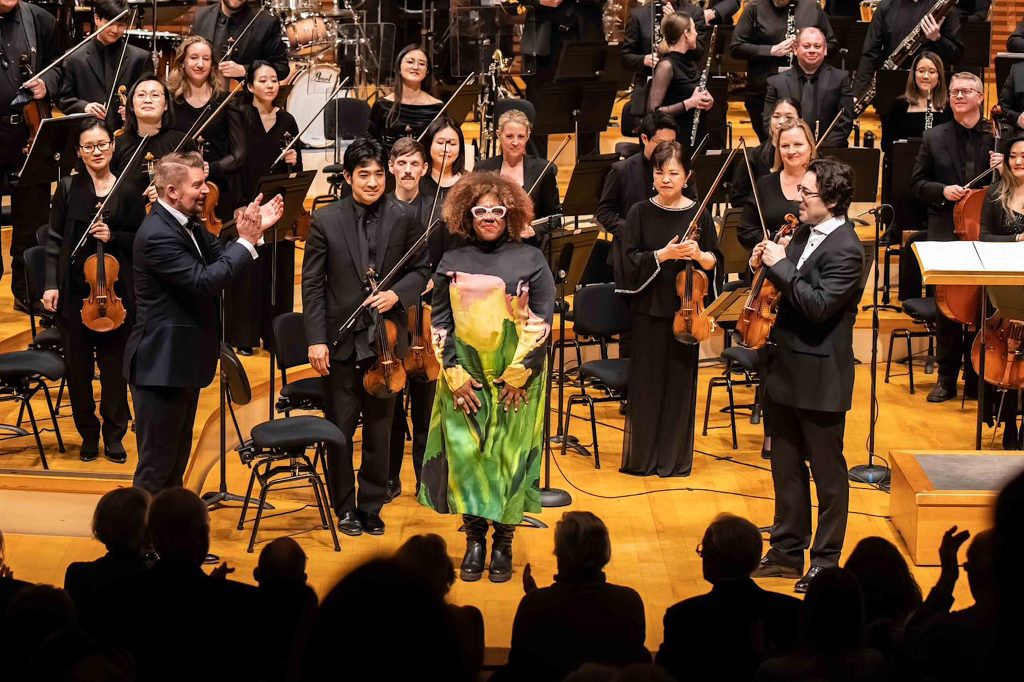
PH: You’ve described how you felt an immediate chemistry with these musicians in your first encounter with them. Could you describe, for a layperson, what that feels and looks like? What outward expressions does that special rapport with the musicians take?
MP: From both the orchestra’s side and the conductor’s side, we know within minutes what’s going on. … I can immediately identify those key players that I connect with, and an orchestra knows in five minutes what’s going on with me. I don’t know what “chemistry” is, but everybody had told me ahead of time, “Oh my gosh, you’re going to love the orchestra in Kansas City.” So I came in eagerly and happily, and I walked out on that Wednesday morning exactly the same way I would start any rehearsal with any orchestra on any continent that I’m meeting for the first time. And there was something different. Some people actually smiled at me already as I greeted the orchestra. That’s maybe rare: Usually people are like, Alright, show us what you’ve got.
So you come together to seek consonance, to seek synergy. And maybe that’s what I felt with this orchestra. It’s a very “tuned” orchestra. The musicians have a great sense of style and phrasing, and they have great intonation. If the intonation is spotless, then you can actually start to shape the sound. … There was instant response to my gestures. When I would address something, such as a bow change, it was instantly absorbed.
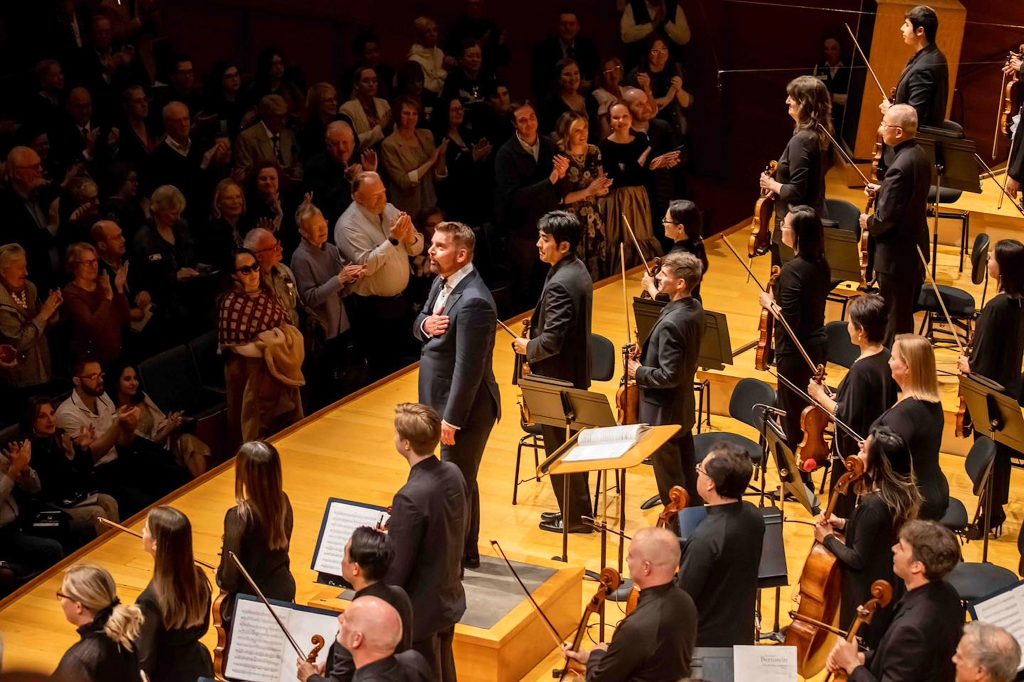
It’s a very cordial, professional work environment. I didn’t feel like I had to walk on ice, or test things out. After 10 minutes, we were just rehearsing as if we’d known each other for years. … They made me comfortable to be exactly the person that I am, to do exactly what I would do anywhere else with any top orchestra.
How do you see the function of the orchestra today, in the United States but also in Kansas City specifically?
I believe the role of a symphony orchestra in a community is to help us “re-appreciate” what it means to listen. … In today’s world we all need to learn how to listen again, to listen to each other … especially coming out of COVID-19. … This is what a symphony does. We open our doors and we prepare something for our listeners that we believe in, that we believe is beautiful. …
We are anxious to reach and generate new audiences, but we can never forget that we must take the absolute best care of the audience that is in place — that is supporting us, on whatever level.
What is the modern orchestra’s core repertoire: say, for the Classical Series? Yes it includes Beethoven and Mahler, Sibelius and Ravel and Strauss. But does it, or should it, also include Ligeti, Boulez, Berio, Takemitsu, Magnus Lindberg, Charles Wuorinen? And are there principles behind balancing accessibility with difficult scores — with music that requires extra care to grasp?
It is our obligation to show the best of what has been produced in this country, and in the world. And I absolutely believe that if music is played at the level that an orchestra like ours offers, it will communicate.
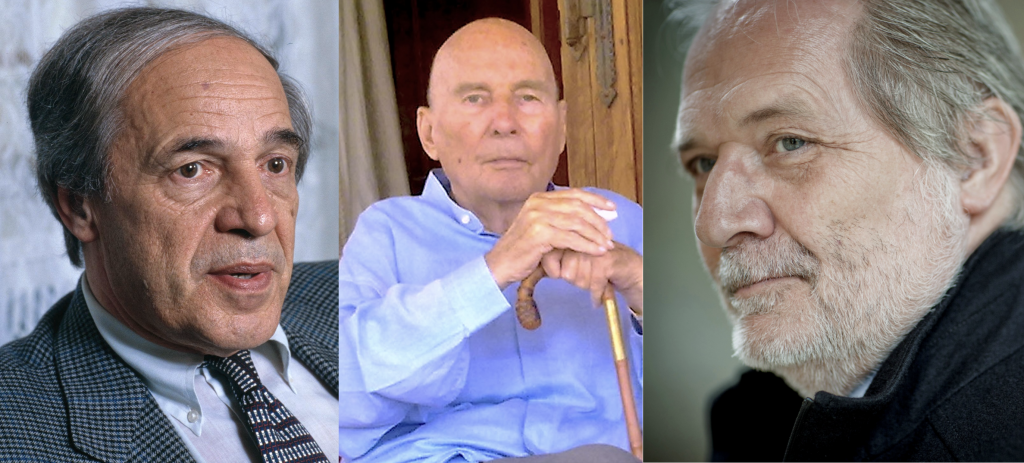
It should be the same as if you were going to a museum. … You might like the Kandinsky less than the Miró, and that’s not even a discussion: It’s totally fine! And then if you go to the symphony, and you like one piece less than the other, that should be equally fine. …
In our society, it is our role to show the all-encompassing repertoire that is in front of us: In what proportion it is balanced depends of course on the audience and its response. So I’m coming here to keep building on what Michael Stern has built. … Let me just get started and feel the community and feel those responses.
Let’s see how it goes. I’ve also made it very clear, by the way, that I’m not featuring my own works for a few years, because I don’t think that’s right.
— By Paul Horsley
The Kansas City Symphony embarks on its first-ever European tour this August 26th through the 29th, with concerts in Berlin, Amsterdam, and Hamburg. It opens its first season with Matthias Pintscher as music director on September 13th. For tickets, call 816-471-0400 or go to kcsymphony.org.
To reach Paul Horsley, performing arts editor, send an email to paul@kcindependent.com or find him on Facebook (paul.horsley.501) or Twitter/Instagram (@phorsleycritic).
